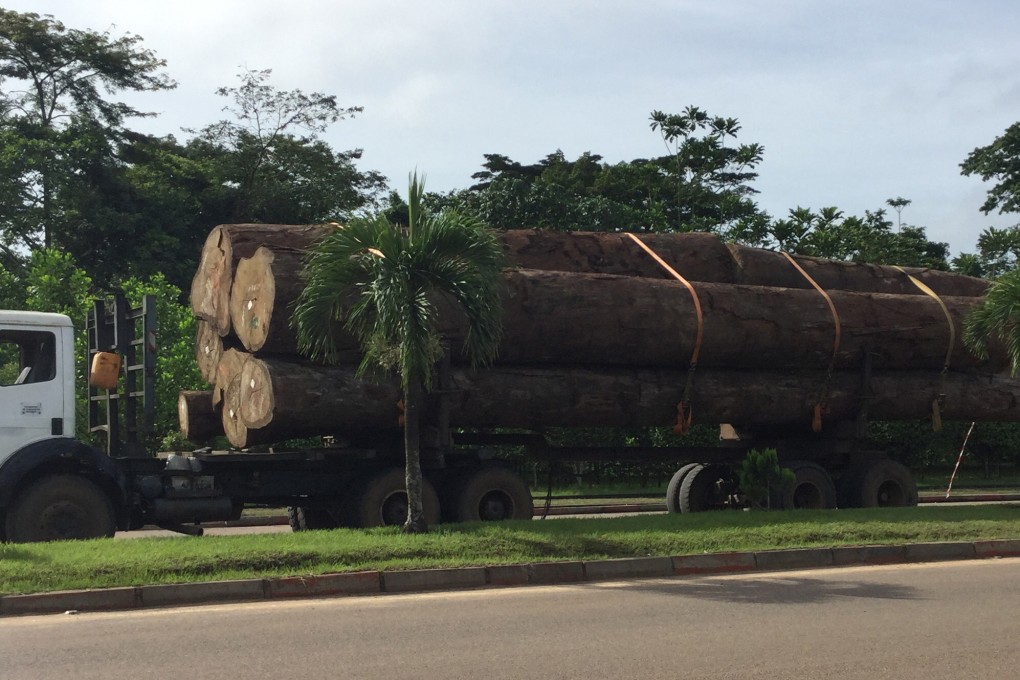China-reliant Gabon finds oil-free, green future in its forests
- The small African country’s environment minister talks climate financing at the IMF’s spring meeting as the need to replace oil revenues grows
- With trees covering most of its land mass and long-term protections in place, Chinese companies lead the way in forest industry

“They said this has never happened before. Gabon is just different,” said Lee White, whose portfolio includes forests, oceans and climate change, after the meetings. “We spent a lot of time talking about climate financing.”
With more than 60 per cent of its revenues coming from oil and manganese ore, Gabon is hoping to replace its petroleum income by strategically positioning its forests, which cover more than 80 per cent of the country.
In 2019, more than 60 per cent of Gabon’s US$6.43 billion in exports went to China, followed by Singapore, South Korea, Malaysia and India. Crude petroleum made up about 66.9 per cent, followed by manganese ore at 20 per cent. Sawn wood and veneer sheets accounted for just 8 per cent of overseas trade.
When Covid-19 struck in 2020, Gabon’s exports fell to US$4.34 billion, according to the Observatory of Economic Complexity. China remained the country’s biggest destination for its crude petroleum, minerals and wood products.
Gabon’s former president Omar Bongo Ondimba predicted a future without oil and implemented drastic measures to strike “a balance between conservation and exploitation of timber”.
These included laws creating 13 national parks, which led to the cancellation of more than a million hectares of forest concessions.
